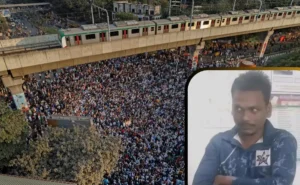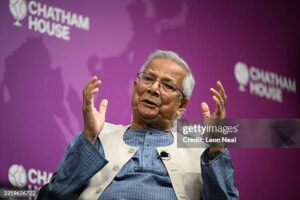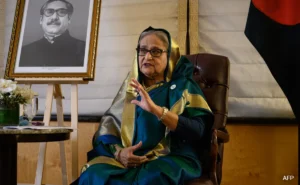As we traverse the landscape of Bangladesh’s political and cultural history, it is crucial to reflect on the pivotal moments that shaped our nation’s identity. The language movement of 1952 and the liberation war of 1971 stand out as defining events, with towering figures like Bangabandhu Sheikh Mujibur Rahman guiding our struggle for autonomy and dignity. However, in recent times, there has been a concerning trend of diminishing respect for our history and its key architects. The question arises: Will we forget the sacrifices of the liberation war and the contributions of Bangabandhu, particularly in the context of modern political tensions?
The liberation war of 1971 was not merely a conflict over territory; it was a battle for identity, culture, and the fundamental rights of Bengali people. Leading this charge was Sheikh Mujibur Rahman, a figure synonymous with our quest for liberation. His vision and leadership were instrumental in galvanizing a nation that had long suffered oppression. To forget this legacy is to betray the very spirit of our independence.
However, in today’s political climate, we observe disturbing trends that seem to undermine this historical legacy. Criticism of current leaders, including Sheikh Mujib’s daughter, Sheikh Hasina, often veers into territory that reverberates with disrespect toward the father of the nation himself. While it is valid to critique a leader’s performance, conflating this with a rejection of Bangabandhu’s contributions is a perilous path. The narrative that portrays Bangabandhu as disconnected from the present struggles of the nation diminishes the sacrifices made during the liberation war.
It is essential to understand that a nation’s strength lies in its ability to honor its past while striving for a better future. Disrespecting a foundational figure such as Bangabandhu, who dedicated his life to the cause of Bangladesh, is a step backward. We must not allow current political dissatisfaction to cloud our judgment about his unyielding commitment to our rights and dignity.
Moreover, the resurgence of extremist sentiments among certain groups, such as Jamaat-e-Islami, poses an additional threat to our national unity. Their actions against monuments and symbols of our heritage—like the vandalization of Bangabandhu’s statues—demonstrate a troubling desire to erase the narratives that contradict their ideologies. Such acts are not merely assaults on art or memorials; they are direct attacks on the very fabric of our identity as a liberated country.
In the context of all these challenges, it becomes imperative to ensure the memory of our leaders and the events that shaped our nation do not fade. Countries around the world cherish the memories of their liberation movements and the leaders who guided them. They understand that the essence of freedom is rooted in the acknowledgment of past sacrifices.
As we reflect on our history, we must strive to educate future generations about the importance of these moments—of the language movement, the sacrifices of 1971, and the pivotal role of Bangabandhu Sheikh Mujibur Rahman. This education should transcend political affiliations and focus on the collective identity of Bangladesh. To label any critique of current politics as a betrayal of Bangabandhu’s legacy is not just a political stance; it is a moral obligation.
we celebrate our independence and the contributions of our leaders, we must do so with respect and understanding. Criticism should be constructive, aimed at building a nation that honors its past while addressing contemporary challenges. We cannot allow the complexities of modern politics to overshadow the legacies of those who fought valiantly for our freedom. Sheikh Mujibur Rahman remains a symbol of that struggle, and our remembrance of his contributions should stand firm against the tide of forgetfulness and disrespect.






Shame on them breaking their Founder’ s statue
Shame on them breaking their Founder’ s statue
Alhamdulillah
হারামজাদা তুই কি দল চেঞ্জ করে ফেলেছিস নাকি তুই দেশে আয় তো কেউ এভাবে পিটিয়ে হত্যা করা হবে তোর জিভ টেনে ছিড়বো আমরা
Have you changed your party or you used to be BNP why are you putting your life in danger?
If you don’t make it, if you don’t make it to BNP, Awami League will bring you home and cut your throat and hang you like your uncle.
From the Islamic point of view, it is better not to have idols of the country, we will smash everything including your Hindu idols.
I will beat you and your God together and send them to India
No one can stop Awami League, Awami League will come back again
আপনারা এতদিন বিএনপি ছিলেন এখন আওয়ামী লীগ হয়ে গেছেন। এখন আপনার ভাল সময়. হঠাৎ আওয়ামী লীগ হয়ে গেলেন কেন? তারা কি তোমাকে ছেড়ে যাবে? এমনকি নিজের দলেও যোগ দিতে পারবেন না।
Nephew get ready BNP will come to power after some time then they will tell you whether you can stay in the country or you have to go to India.
Your entire family is a fugitive in India, why are you bothering about these things, what is your connection with Bangladesh?
Mullahs have set fire to your house because of your activities like this.
I pray to Allah, if I had found you once, I would have burned your house like a house.
What you have written, will you ever come back to the country, will BNP spare you?
If you love Bangabandhu so much, then come to the country and show your love and see how brave you are?
এটা তার বাপের জন্য করছে রাখা যাবে না
এই বঙ্গবন্ধু অনেক মায়ের বুক খালি করেছেন আর তুমি গাইছ অনেক মাদারচোদের গান, তোমার জিভ কেটে দিতে হবে।
সাহস থাকলে আপনার মত কুকুরকে ছাত্ররা পিটিয়ে মেরে ফেলবে, দেশে আয় দেখলে সংগ্রাম পরিষদ আপনার কি করবে
Jamaat-e-Islami will cut your hand and hang it on a tree, remember this before you come to the country.